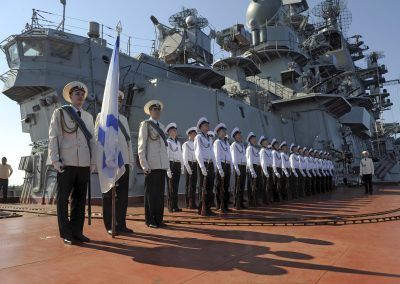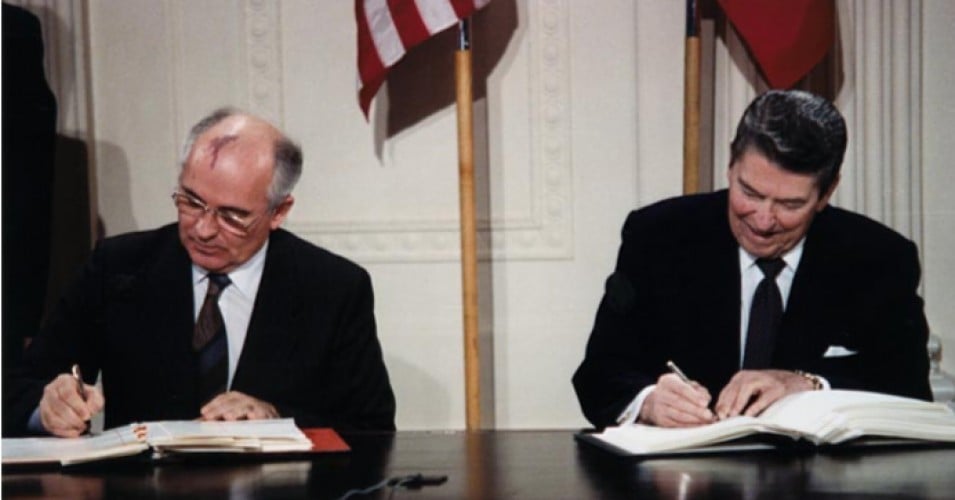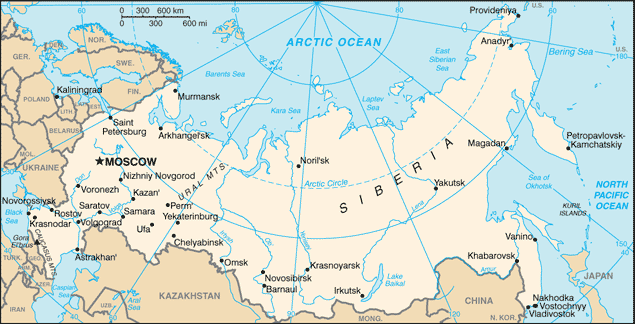The Role of Russia in Contemporary Global Politics and International Relations

All Global Research articles can be read in 51 languages by activating the Translate Website button below the author’s name.
To receive Global Research’s Daily Newsletter (selected articles), click here.
Click the share button above to email/forward this article to your friends and colleagues. Follow us on Instagram and Twitter and subscribe to our Telegram Channel. Feel free to repost and share widely Global Research articles.
***
It is a historical law that each state in the world changes with time. However, only a few states experienced dramatic change during the short period of time as Russia did over the last 33 years.
Russia has changed as a state, nation, and military power followed by her fluctuating position in global politics and international relations.
Since 1991 up today Russia transformed peacefully its entire political and economic system which is relatively rare in history. When the USSR dissolved in 1991, Russia left to be one of its 15 constituent republics which proclaimed independence forced to overwhelmingly redefine her role in global politics.
The 1990s were very painful for Russia’s position in international relations as the country’s foreign policy was, in fact, supervised and directed by Washington and Brussels as the case of NATO’s direct aggression on Serbia and Montenegro in 1999, for instance, clearly shows but since 2008 (Russian-Georgian War) Russia’s foreign policy once again became an independent and gradually returning the country to the club of Great Powers as the case of the Ukrainian crisis since 2014 onward demonstrates it undoubtedly today.
Nevertheless, probably the most significant anomaly dealing with Russian politics is the fact that Russians are understandably (very) suspicious of the West and its policies toward their country but miraculously at the same time they accept the Western culture and moral values and both economic and political systems (at least up to the special military operation of Russia in East Ukraine since the end of February 2022).
Nevertheless, the importance of Russia´s influence in the world in the arena of global politics is based on the fundamental fact that Russia is one of the strongest international actors that is determining the global political agenda.
It means that Russia is a member of the Great Power’s club as „a great power state is a state deemed to rank amongst the most powerful in a hierarchical state system “.[i] Russia in this respect surely fits to conventionally accepted criteria that define a Great Power:
- Great Power state is in the first rank of military prowess.
- Great Power state can maintain its security and influence other states on how to behave.
- Great Power state is economically powerful, although this is a necessary but not a sufficient condition for membership to the Great Power club (the cases of Japan or Germany are the best illustrations of this claim).
- Great Power state has global but not only regional spheres of national interest and action.
- Great Power state is running a „forward“ foreign policy and, therefore, it has a real but not only potential influence on international relations and global (world) politics.[ii]
- Great Power is a state (at least according to the 18th-century concept) that could not be conquered even by the combined might of other Great Powers.[iii]
Russia surely belongs today to the club of key global powers having powerful nuclear weapons, a growing economy, and perspective economic capacities but what is most important and different to others, Russia possesses almost endless natural resources (many of them are probably still even not discovered).
From a geopolitical viewpoint, Russia is occupying the crucial segment of the Heartland – the focal geopolitical part of the world and, therefore, the rest of the (Western) Great Powers historically wanted either to occupy Russia (for instance, Napoléon I or A. Hitler) or to control her authorities (for instance, of Boris Yeltsin).[iv]
Russia with its rich history and national traditions is today in the process of defying its new role in the current century, especially since February 2022 onward. Russia seeks peace (up to the extent when its vital national and existential interests are in danger), justice, multipolarity in international relations (against US hegemony), and, therefore, global stability, yet it is quite visible that Western threats against Russia’s security and her positive role in international politics exist.
Nevertheless, behind Russia’s policies, there is a comprehensible strategy based on a firm vision of the contemporary world and the protection of Russian national interests.
 A contemporary history of Russia starts after the dissolution of the USSR by Mikhail Gorbachev (according to the agreement with Ronald Reagan in Reykjavík in October 1986),[v] which marked at the same time the beginning of the political and economic turmoil in the 1990s when Russia under Boris Yeltsin and his pro-Western liberals was a puppet state of the West.
A contemporary history of Russia starts after the dissolution of the USSR by Mikhail Gorbachev (according to the agreement with Ronald Reagan in Reykjavík in October 1986),[v] which marked at the same time the beginning of the political and economic turmoil in the 1990s when Russia under Boris Yeltsin and his pro-Western liberals was a puppet state of the West.
However, the country gradually emerged from the period of instability since 2000 mainly due to well-combined six factors that the new administration of President Vladimir Putin skillfully exploited to the full extent:
- Substantial mineral resources, particularly oil and gas.
- Significant military power, based on the second-greatest nuclear potential in the world.
- Relatively well-educated productive segment of the population.
- High-quality scientific and technological base which survived in several industries.
- Permanent membership in the UNSC, the G8 and G20.
- Important political and economic influence on the territory of the former Soviet Union (the area of Near Abroad).
It is predicted that Russia will remain in the future as one of the focal and strongest international actors on the same level of influence together with the US, EU, China, and rising Islamic cultures, especially Iran and Turkey.
Russia’s natural resources and capabilities already allowed it to follow an independent line in foreign policy and security interest, both in the post-Soviet region and in some key areas of the world: East Europe, Central Asia, and the Middle East. However, Moscow’s interests will inevitably clash with those of other major actors – especially the US and its European clients as the situation today in Ukraine demonstrates.
That is for sure that world order in international relations is going to continue to function according to World Systems Theory: a variant of structuralism that conceptualizes world order as being structured into:
- A rich and developed core;
- Poor and underdeveloped periphery; and
- Many intermediary or semi-peripheral states.
Russia is going to improve its position within the first group which gave all Great Powers who are going to govern international relations and global politics according to the principle of Balance of Power which refers to a mechanism whereby Great Power’s states collaborate with each other in order to maintain their interests against threats from those who would seek systemic dominance, such as the US during the first 18 years after the Cold War 1.0. (till 2008).
Due to the great impact of Russia, a future world order already started to get rid of both the US’s political hegemony[vi] and the process of Americanization that is primarily the influence of the US on key areas of international interaction, including international relations, popular culture, technology, business activities or language which is leading in many countries to the loss or significant undermining of local customs, traditions, and identities.
Nevertheless, it has to be noticed that Russia’s internal stability and international standing can be endangered by the country’s possible failure to solve two of its essential problems:
- Diversification and modernization of the economy.
- Threatening potential demographic collapse.
*
Note to readers: Please click the share button above. Follow us on Instagram and Twitter and subscribe to our Telegram Channel. Feel free to repost and share widely Global Research articles.
Dr. Vladislav B. Sotirović is a former university professor in Vilnius, Lithuania. He is a Research Fellow at the Center for Geostrategic Studies. He is a regular contributor to Global Research.
Notes
[i] Andrew Heywood, Global Politics, New York: Palgrave Macmillan, 2011, 7.
[ii] About world politics, see in [Jeffrey Haynes et al, World Politics, New York: Routledge, 2013].
[iii] Richard W. Mansbach, Karsten L. Taylor, Introduction to Global Politics, Second Edition, London−New York: Routledge, 2012, 578.
[iv] About geography and history, see in [Halford John Mackinder, “The Geographical Pivot of History”, The Geographical Journal, 23, 1904, 421−437; Pascal Venier, „The Geographical Pivot of History and Early 20th Century Geopolitical Culture“, Geographical Journal, 170 (4), 2004, 330−336].
[v] About R. Reagan and M. Gorbachev’s relations, see in [Jack F. Matlock Jr., Reagan and Gorbachev: How the Cold War Ended, New York, Random House, 2004].
[vi] About the US’s foreign policy in the post-Cold War’s world, see in [David P. Forsythe, Patrice C. McMahon, Andrew Wedeman (eds.), American Foreign Policy in a Globalized World, New York−London: Routledge, 2006].
Featured image is from the author


